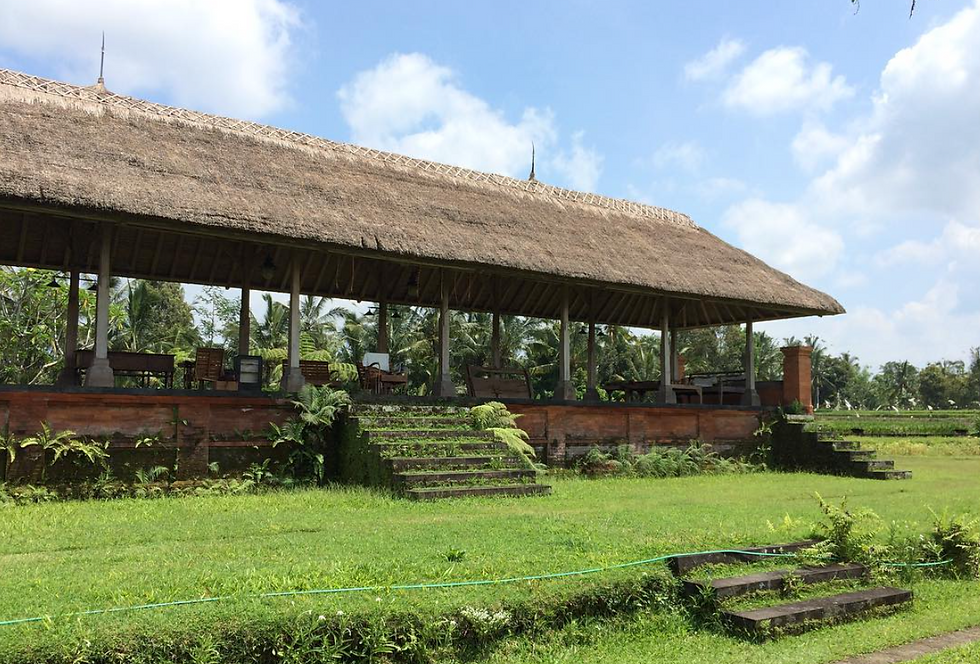TOP TIPS FOR SUSTAINABLE TRAVELS
- hello@makingroots.co.uk
- Jun 20, 2017
- 4 min read
Being more sustainable whilst you travel can hold the power to enrich, enlighten and save you money. But it can also protect the environmental and society you are visiting. Ecotourism itself is defined by environmental sensitivity balanced with social and economic aspects. Basically tourism that not only protects the ecosystem but economically improves the destination, protects host culture whilst improving social structures (which if often highly related to economics and how you spend your money!) But to be sustainable or a little bit greener whilst you explore doesn't only mean staying in expensive eco resorts. Here I have set out some easy ways to reduce your ecological and social footprint whilst having your once in a lifetime adventures! These are things that I regularly do whilst travelling too.
ONE Stay in homestays. Local accommodation is mostly a lot cheaper and is a great way to support local business. Bali, for example is the perfect place to take advantage of cheap, wonderful home stays (in Bali- they often have beautiful gardens, and lovely families that welcome you in and give you a homely sense whilst travelling alone!) In Fiji, the homestay island hopping package was absolutely amazing. We stayed in beautiful coconut huts on the beach and were integrated in the village, where Fijian people are incredibly friendly, and are happy to show you their island!

TWO
Don't rely on the well marked tourists attractions. Venture out of the highly marketed expensive tour guides. In Iceland we enjoyed the free, hike-able hot lagoons around the South that were empty and sat on the edge of a volcano in the middle of nowhere and loved it a lot more than the very expensive, very busy Blue Lagoon. Make sure you stay within permitted areas, and enjoy an authentic side...

THREE
Insist on no plastic. Islands and beach side towns are particularly sensitive to single use plastic which can easily leach into the ocean. Here, it can do a huge amount of damage, but it’s also hugely detrimental on land. 1/2 of Turtle Hatchlings get trapped in plastic debris on the run to the ocean. Gross.

FOUR Do not pay to hold animals in the street. Holding cute animals for a selfie on the beach or street does not fund conservation or helping local wildlife. These animals are taken from their natural habitats and held captive by people who make money from tourists who want a selfie. These practices also fuel the illegal pet trade- a trade that is threatening species around the world. Don't be a part of it. A great way to see wildlife is to go walking and spotting wildlife in their natural habitat. Most cities and tourists spots have local guides that will be able to show you the native wildlife in habitat.

FIVE
Public transport (includes walking- which is free!) Using public transport in a new town when safe is so liberating. Its cheap and you get to see a whole new side to the destination (not to mention reducing carbon footprint…) I also thoroughly recommend walking around cities. Not only is it great to work off the great local food, it saves money and is an absolutely amazing free way to explore.

SIX Try long slow travel rather than fast lots of flights travel. The world is a pretty amazing place- I think we can all agree. But there is no need to see it all in a few months. Take your time- spend as long as your visa will allow in a new country. Explore, walk around and get a real feel for it. Volunteering is a great way to make your money last longer, to give something back and a different experience to what you’ll feel when visiting purely as a tourist. Finding alternate ways to get around, other than flying is a really interesting way to see the country too. You get a much more authentic experience.

SEVEN Choose your guides wisely. Supporting local tourism is important, but supporting sustainable ethics is more so. It is detrimental to the local ecosystem and wildlife, if guides are touching things that they shouldn't be! If you see pictures of snorkel guides touching Turtles for example, choose a different organisation. Scaring or harming wildlife will have negative impacts on the wildlife but also for the local economy long term. Choose companies that treat their environment properly, as you are benefiting their long term income source too.

EIGHT Eat what the locals eat, at the local restaurants. Not only will you see a whole new, authentic cuisine and epic flavours but you will find your bill cheaper, and whatever your money will support local businesses. Many people are nervous about eating street food, my advice is to ensure that all food you eat is piping hot, and if you’re really worried I have found sticking to the veggie option can help. The only time I have ever been sick whilst travelling- was the rare occasion that I ate a hotel buffet breakfast.

Making some sustainable choices whilst travelling won’t only keep more cash in your pocket but has the power to help our planet and the local economies. It doesn't take much, just simple thought out methods that will make your stay even more special…




Comments